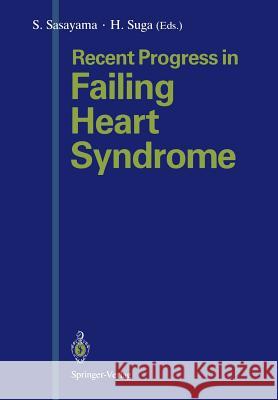Recent Progress in Failing Heart Syndrome » książka
Recent Progress in Failing Heart Syndrome
ISBN-13: 9784431680192 / Angielski / Miękka / 2011 / 344 str.
Heart failure is a syndrome caused by a heart dysfunction that leads to insuf- ficient blood in the peripheral tissues for their metabolic demands. This syn- drome still remains an obscure clinical entity and even its definition is disputed. It has become increasingly apparent that heart failure may relate not only to cardiac dysfunction but also to other physiological alterations involved in the maintenance of circulatory homeostasis. In 1988, the Japanese Circulation Society organized a three-year project for research on heart failure. The research group consisted of ten investigators, all relatively young but well recognized internationally for their research accomplishments. This book represents a compilation of the achievements by this group during the past three years which have led to new insights into the pathophysiologic mechanisms of heart failure, and diagnosis, evaluation and treatment of this syndrome. Contents include research into the cellular biology of congestive heart failure, and a framework of pressure-volume relationships enabling assessment of ventricular contraction energetics or coupling of ventricular properties and arterial load. This conceptual framework is of vital significance, particularly when we consider the failing heart as an energy-depleted state. An understanding of the neuroendocrine responses to explain the pathophy- siology of congestive heart failure is perhaps the most important advance, and has led to new developments in therapy. This book also includes an analysis of mechanical factors, including both regional, and global ventricular functions, and this is related to the under- standing of the pathophysiology of congestive heart failure.











